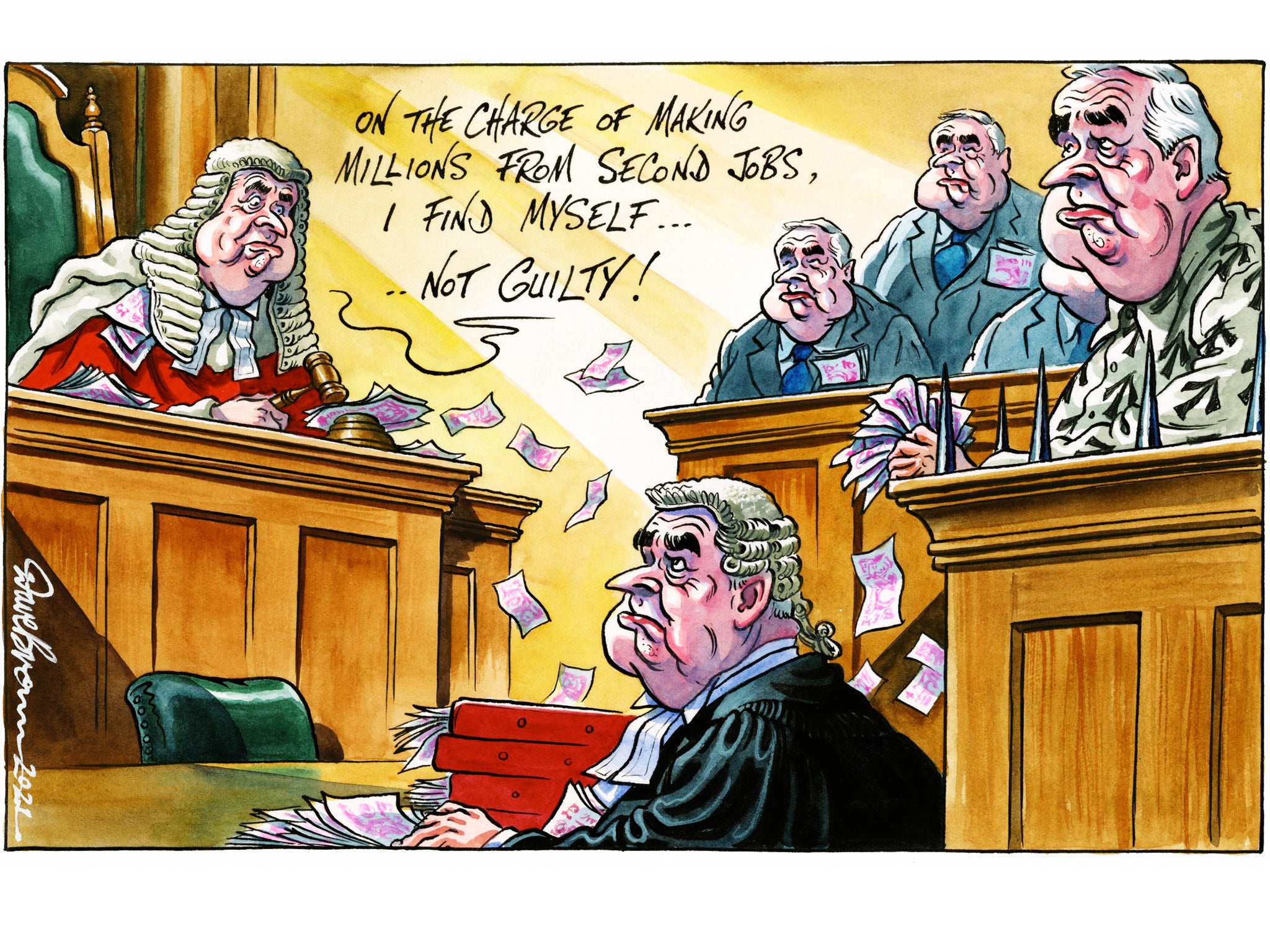What was Geoffrey Cox doing in the British Virgin Islands?
The controversial aspect is how the former attorney general found time to undertake arduous duties while performing as a member of the British House of Commons, writes Sean O’Grady


When he was attorney general under Theresa May, Sir Geoffrey Cox once berated his fellow MPs in one of the very many acrimonious debates about Brexit by asking the simple question: “What are you doing?”
The admonishment now applies to him, given the recent controversy. What, specifically, was the Right Honourable Sir Geoffrey Cox QC, member of parliament for Torridge and West Devon, doing in the British Virgin Islands (BVI) in the first place?
It requires some context. The BVI is best known as a tax haven, a place where the wealthy may park their substantial assets, money and property in anonymous shell accounts and free of most, if not all, forms of taxation. Constitutionally, it is a British Overseas Territory in the Caribbean, or what used to be called a crown colony. As such, it enjoys a certain amount of internal self-government. Or, rather, it did, because its governance is currently being examined by a commission of inquiry imposed on it by the ultimate power, the UK – a highly unusual event. The commission is chaired by a retired British judge, Sir Gary Hickinbottom. In due course, Sir Gary’s commission will report to the British-appointed governor, John Rankin, representing the Queen, rather than the BVI premier, Andrew Fahie. This is the commission with which Sir Geoffrey has been associated. For his fee of £400,000 plus value added tax, Sir Geoffrey advised the BVI administration and undertook a review of its workings.
In the commission’s words, its “purpose is to establish whether there is evidence of corruption, abuse of office or other serious dishonesty that has taken place in public office in recent years, and if so what conditions allowed this to happen. This will ensure that BVI’s governance is working in a fair and transparent manner for the people of BVI. The commissioner will report his findings and recommendations to the governor.”
“The commission of inquiry is not a court, therefore it will not make findings of criminality.”
The allegations are serious, and include:
- £5m of public funds finding their way to a non-existent airline
- £30m for the families of victims of Covid ending up with politicians’ associates
- nearly £1m spent on building a short wall around a school
- tens of millions for a hospital and a dock for tourist cruise ships spent but not properly accounted for
- reports of a remarkable £180m – one hundred and eighty million pounds – worth of cocaine seized from the home of a BVI police officer.
There are also generalised accusations of a climate of fear in government, and links to organised crime. On the other hand, many locals BVIslanders object to such imperialistic interference. Dominic Raab, as foreign and Commonwealth secretary, launched the investigation in January by declaring: “We have a constitutional and moral duty to protect the interests of the people of BVI – we cannot ignore such serious allegations.”
It is perfectly normal, indeed beneficial, to have high-powered, persuasive, forensically inclined lawyers involved in inquiries such as this; all arguments need to be heard and the evidence examined. Sir Geoffrey, with his background in commercial law and experience as Her Majesty’s Attorney General for England and Wales, was well-suited to his role. The controversial aspect, of course, is how he found the time to undertake such important and arduous duties at the same time as his work as a member of the British House of Commons.
In his own defence, he states: “Sir Geoffrey regularly works 70-hour weeks and always ensures that his casework on behalf of his constituents is given primary importance and fully carried out. Throughout this period, he continued to have online meetings with organisations, businesses and individuals within the constituency and it made no difference where he was for that purpose since it was not practicable or desirable at that time to meet face to face. As to the use of the proxy, prior to his visit to the BVI, he consulted the chief whip specifically on this issue and was advised that it was appropriate.”
As they say in the court reports, the case continues.



Join our commenting forum
Join thought-provoking conversations, follow other Independent readers and see their replies
Comments